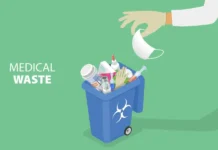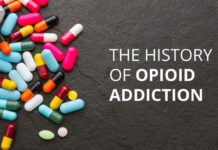
Substance abuse is a complex challenge that requires ongoing support and monitoring, especially during the critical phase of recovery. In recent years, technology has emerged as a valuable ally in the fight against addiction.
Behavioral and mental health software is frequently implemented to provide comprehensive solutions for addiction recovery. According to Research and Markets, the market for mental health software was around US$2.5 Billion in 2022. It is expected to touch a market valuation of US$7.8 Billion by 2030.
Substance abuse treatment software is typically categorized under behavioral and mental health software. It comes equipped with cutting-edge features and functionalities and has revolutionized the way healthcare professionals approach addiction treatment.
From tailored treatment plans to remote monitoring, here’s how substance abuse treatment software is transforming the landscape of addiction recovery.
Personalized Treatment Plans
One of the primary ways substance abuse treatment software aids long-term sobriety is by creating personalized treatment plans. As noted by American Addiction Centers, addiction necessitates personalized therapies and approaches that address the symptoms. These include detoxification, inpatient rehab, and outpatient rehab.
Depending on the severity of the addiction, you may require one or more levels of treatment to achieve long-term recovery. Through the analysis of patient data and history, the software assists clinicians in developing customized strategies that address individual-specific challenges.
This tailored approach not only boosts the effectiveness of treatment but also enhances patient engagement and commitment to being sober. This personal touch ensures that individuals receive the specific care they need to conquer their addiction.
Real-time Progress Tracking
Substance abuse treatment software empowers both patients and healthcare providers with real-time progress tracking. Regular updates on milestones achieved, therapy sessions attended, and coping mechanisms practiced help individuals gauge their progress.
This transparency fosters a sense of achievement and motivation, which is crucial for maintaining sobriety over time. It allows patients to celebrate their victories and reminds them of the progress they’ve made on their journey to recovery.
Public Figures Inspiring Recovery
Celebrities who have struggled with addiction in the past have been seen celebrating their sobriety milestones in the past. Lucy Hale, an established actress known for her part in Pretty Little Liars, is one example. As reported by Women’s Health in February, she turned to social media to mark the one-year anniversary of her sobriety.
People.com noted that Rob Lowe, known for his role in ‘The Outsiders,’ also shared his sobriety milestone on Instagram. The 59-year-old actor revealed in May that he is celebrating an impressive 33 years of sobriety.
These public declarations convey hope and resilience, deeply affecting viewers and fans struggling with their own challenges.
Virtual Support
Telehealth integrated into treatment software has emerged as a game-changer in the realm of addiction recovery. Virtual sessions enable continuous access to therapy and support groups, ensuring consistent engagement even after the initial treatment phase.
Accumedic Computer Systems emphasizes that remote interactions offer convenience and privacy. This makes it easier for individuals to seek help when needed. This ultimately increases their chances of sustained sobriety. This virtual support system bridges geographical gaps and ensures that individuals can access assistance regardless of their location.
Medication Management
Effective medication management is vital for individuals in recovery. Substance abuse treatment software includes features that allow healthcare providers to monitor and manage medication schedules.
Automated alerts for dosage, prescription refills, and potential interactions ensure that individuals stay on track with their treatment plans. By incorporating medication management into the software, individuals receive the reminders they need to stay compliant with their prescribed regimen.
Relapse Prevention Strategies
Software designed for substance abuse treatment equips healthcare professionals with advanced analytics to identify potential triggers for relapse. By closely monitoring behavioral patterns and triggers, clinicians can intervene promptly with coping strategies, preventing a slip back into addiction.
These proactive measures provide individuals with the tools they need to navigate challenges successfully. By addressing potential relapse triggers head-on, individuals can develop resilience and strategies to overcome them, reducing the risk of setbacks.
Big Data Analytics
Healthcare professionals benefit from the data-driven insights provided by substance abuse treatment software. By analyzing patterns, success rates, and relapse triggers across a patient population, clinicians can refine treatment approaches and tailor interventions.
These evidence-based insights contribute to more effective strategies, ultimately enhancing the support provided to individuals striving for long-term sobriety. By continuously analyzing and adapting based on data, healthcare professionals can better serve their patients on their journey to wellness.
Final Word
Substance abuse treatment software has emerged as a game-changer in addressing addiction recovery, offering a toolkit to support lasting sobriety. By tailoring plans, tracking progress, leveraging influencers, offering virtual support, and managing medication, the software enables comprehensive, personalized recovery paths.
Incorporating relapse prevention and data-derived insights strengthens impact, aiding timely interventions and enhancing treatment strategies for healthcare providers. As technology advances, the potential to elevate addiction recovery outcomes grows, instilling renewed optimism for continuous sobriety and enhanced well-being.
Read Also: Robie Uniacke – Failed Marriages & Drug Addiction


































































